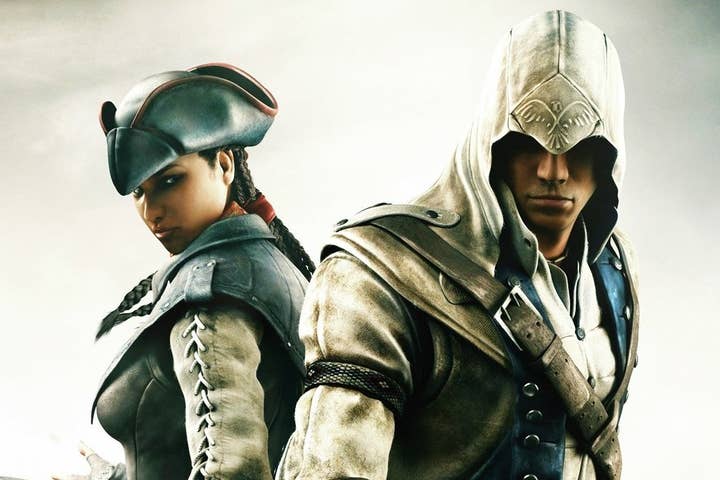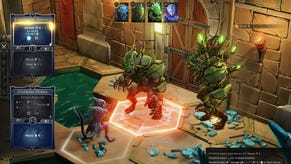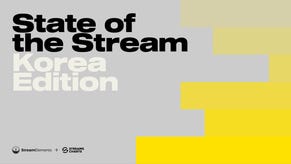No female Assassin's Creed characters a "reality of development"
Ubisoft Montreal's James Therien says playable female models in Unity would have "doubled the work" [UPDATE 2: Unity director responds]
Update 2: Alex Amancio, director of Assassin's Creed Unity, has responded to the controversy swirling around Ubisoft Montreal's decision to exclude playable female avatars from the game's co-op gameplay.
Speaking to Eurogamer, Amancio stated that, while he understands the outpouring of disappointment that greeted the news, it isn't "relevant" to the game.
"I understand the issue, I understand the cause, and it is a noble one, but I don't think it's relevant in the case of Unity," he said. "In Unity you play this character called Arno, and when you're playing co-op you're also playing Arno - everybody is. It's like Aiden Pierce in Watch Dogs.
"On the brand we've had multiple diverse characters. Altair is Arabic, Connor is Native, we've had a female lead. This game is set in the French Revolution, so you're playing a Frenchman."
However, Amancio did create some distance between the company's current stance and the comments made by technical director James Therien that sparked the controversy. Therien originally suggested that the absence of female characters was a practical choice based on resources.
"The team members are here, they work really hard and we take them as spokespeople as we want the answers to be real," Amancio said. "These people aren't professionals, and sometimes they slip up. It's fine. We focus on what we're presenting that's cool - again, I just don't think Unity applies to this subject matter."
Update: Ubisoft has now issued a statement, as reported by Kotaku. The publisher does not address the previous comment about the added cost of including female characters, however.
"We recognise the valid concern around diversity in video game narrative. Assassin's Creed is developed by a multicultural team of various faiths and beliefs and we hope this attention to diversity is reflected in the settings of our games and our characters. Assassin's Creed Unity is focused on the story of the lead character, Arno. Whether playing by yourself or with the co-op Shared Experiences, you the gamer will always be playing as Arno, complete with his broad range of gear and skill sets that will make you feel unique. With regard to diversity in our playable Assassins, we've featured Aveline, Connor, Adewale and Altair in Assassin's Creed games and we continue to look at showcasing diverse characters. We look forward to introducing you to some of the strong female characters in Assassin's Creed Unity," a spokesperson said.
Original story:
The absence of playable female characters in Assassin's Creed Unity is an unfortunate side-effect of the, "reality of game development," according to Ubisoft technical director James Therien.
Speaking to Videogamer at E3, Therien claimed that including playable female avatars in Unity - which will introduce four-player co-op to the campaign mode - was on the Ubisoft Montreal's feature list until recently.
However, the amount of resources involved would have "doubled the work" in areas like character animation and costumes, and the feature was ultimately cut. It was, Therien said, "a question of focus of production."
"It's unfortunate, but it's a reality of game development," said Therien. "It's not a question of philosophy or choice in this case at all.
"It was a question of focus and a question of production. Yes, we have tonnes of resources, but we're putting them into this game, and we have huge teams, nine studios working on this game and we need all of these people to make what we are doing here."
As demonstrated at E3 in Microsoft's press conference, Assassin's Creed Unity will feature questions in which the player can receive assistance from up to three friends, all playing as the series' iconic assassins. The fact that there will be no playable female character models is a strange oversight for Ubisoft, as Assassin's Creed: Liberation has a female protagonist, and female NPC assassins have featured in many of the games and their cut-scenes.
At the very least, Ubisoft shouldn't be surprised at the line of questioning. Gender balance in game content has emerged as a major issue facing the industry's creative teams, whether over their absence or the treatment of those that do make the final cut.
Speaking last year after the release of Remember Me, Dontnod Entertainment's Jean Maxime Moris revealed that its female lead, Nilin, was the reason the game was turned down by a number of unnamed publishers.
In the discussion that followed, Bioware's lead writer David Gaider said that it would take a substantial commercial success to alter the "accepted industry wisdom" that a female protagonist would risk commercial failure.
"It has to be something they can't ignore," he said. "The only way the industry can't ignore something is when money is involved."
Of course, in the case of Assassin's Creed Unity, the issue is not about the game's protagonist, but the gender of the apparently arbitrary character models that can play alongside him. In addition, as one of the most popular and lucrative franchises in the games industry, it's difficult to argue that Assassin's Creed lacks the commercial clout to feature playable women.
All of which leads back to Therien's stated reason: that the nine studios and substantial budget that make Unity possible was not enough to make playable female character models a practical possibility. It rather begs the question, is this really the "reality" of game production today, or just a sacrifice that Ubisoft Montreal was willing to make?









